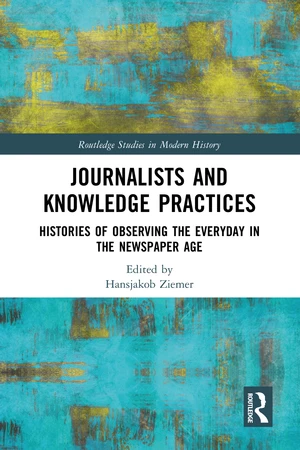This multi-disciplinary anthology provides new perspectives on the journalistâs role in knowledge generation in the newspaper ageâcovering diverse topics from fake news to new technologies. Fake news, journalistic authority, and the introduction of cutting-edge technologies are often viewed as new topics in journalism. However, these issues were prevalent long before the twenty-first century. Connecting for the first time two burgeoning strands of researchâa newly perceived history of knowledge and the study of journalismâJournalists and Knowledge Practices provides insights into the journalistâs role in the world of knowledge in the newspaper age (ca. 1860s to 1970s). This multi-disciplinary anthology asks how journalists conducted their work and reconstructs histories of journalistic practices in specific regional constellations in Europe and North America. From fake news writing to inventing psychological concepts, integrating electric telegrams to fabricating photographs, explaining pandemics to creating communities, these case studies written by distinguished scholars from various disciplines in the humanities show how notions of fact and truth were shaped, new technologies integrated, and knowledge transfers arranged. This book is crucial reading for scholars and students interested in the historically changing relationships between journalistic practices and the generation and dissemination of knowledge. This volume is crucial reading for scholars and students interested in the history of journalistic practice.
Price history
Nov 12, 2022
€47.25

